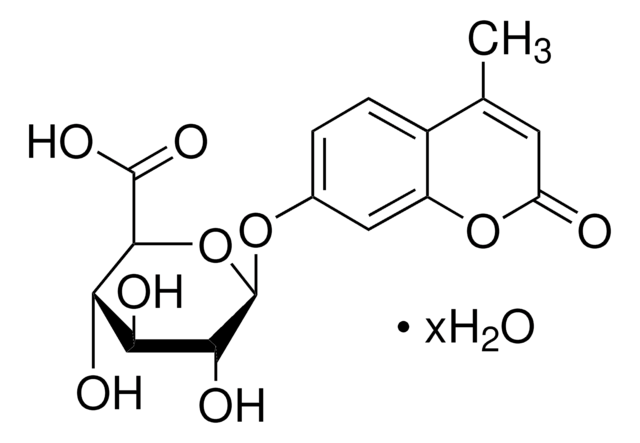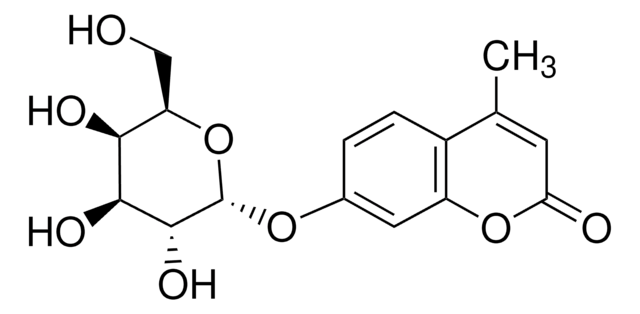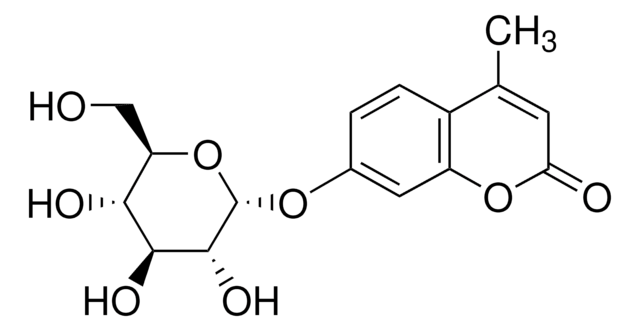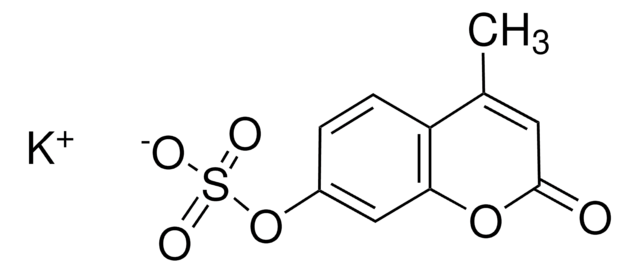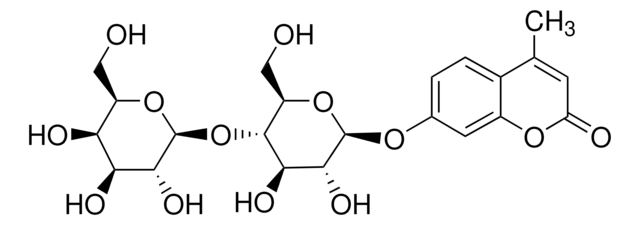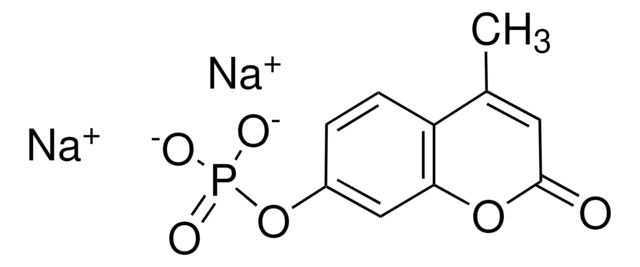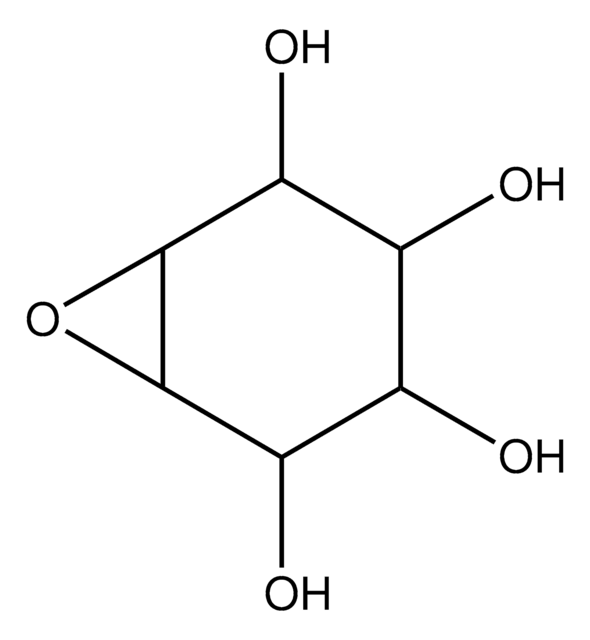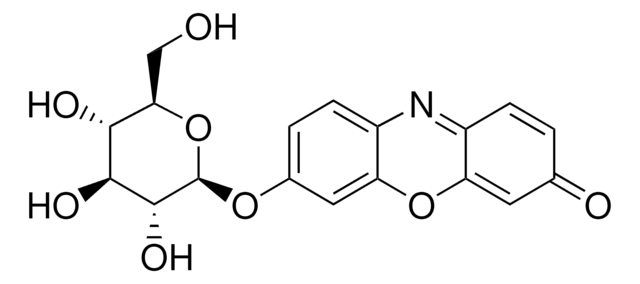Key Documents
M3633
4-Methylumbelliferyl β-D-glucopyranoside
β-glucosidase substrate, fluorogenic, ≥99% (HPLC), powder
Synonim(y):
MUD
About This Item
product name
4-Methylumbelliferyl β-D-glucopyranoside, β-glucosidase substrate
Poziom jakości
Próba
≥99% (HPLC)
Postać
powder
rozpuszczalność
DMF: 50 mg/mL, clear, colorless to faintly yellow
fluorescencja
λex 316 nm; λem 372 nm (pH 9.1)
λex 360 nm; λem 449 nm (Reaction product)
temp. przechowywania
−20°C
ciąg SMILES
CC1=CC(=O)Oc2cc(O[C@@H]3O[C@H](CO)[C@@H](O)[C@H](O)[C@H]3O)ccc12
InChI
1S/C16H18O8/c1-7-4-12(18)23-10-5-8(2-3-9(7)10)22-16-15(21)14(20)13(19)11(6-17)24-16/h2-5,11,13-17,19-21H,6H2,1H3/t11-,13-,14+,15-,16-/m1/s1
Klucz InChI
YUDPTGPSBJVHCN-YMILTQATSA-N
Szukasz podobnych produktów? Odwiedź Przewodnik dotyczący porównywania produktów
Zastosowanie
- in glucosylceramidase β enzyme activity assay in lysosome-enriched fractions from primary hippocampal neurons
- in β-glucosidase assay during yeast fermentation
- to assay glucocerebrosidase 1 (GBA1)-related glucosidase activity in macrophage cell line (RAW)
Działania biochem./fizjol.
Kod klasy składowania
11 - Combustible Solids
Klasa zagrożenia wodnego (WGK)
WGK 3
Temperatura zapłonu (°F)
Not applicable
Temperatura zapłonu (°C)
Not applicable
Środki ochrony indywidualnej
Eyeshields, Gloves, type N95 (US)
Certyfikaty analizy (CoA)
Poszukaj Certyfikaty analizy (CoA), wpisując numer partii/serii produktów. Numery serii i partii można znaleźć na etykiecie produktu po słowach „seria” lub „partia”.
Masz już ten produkt?
Dokumenty związane z niedawno zakupionymi produktami zostały zamieszczone w Bibliotece dokumentów.
Klienci oglądali również te produkty
Produkty
Today, diverse studies report the benefits of probiotics, such as inhibitory effects on pathogens, aid in the management or prevention of chronic intestinal inflammatory diseases or atopic syndromes, and support to the immune system. Potential beneficial applications abound, researchers continue to evaluate the effictiveness and clarify the mechanisms of action of probiotics.
Nasz zespół naukowców ma doświadczenie we wszystkich obszarach badań, w tym w naukach przyrodniczych, materiałoznawstwie, syntezie chemicznej, chromatografii, analityce i wielu innych dziedzinach.
Skontaktuj się z zespołem ds. pomocy technicznej